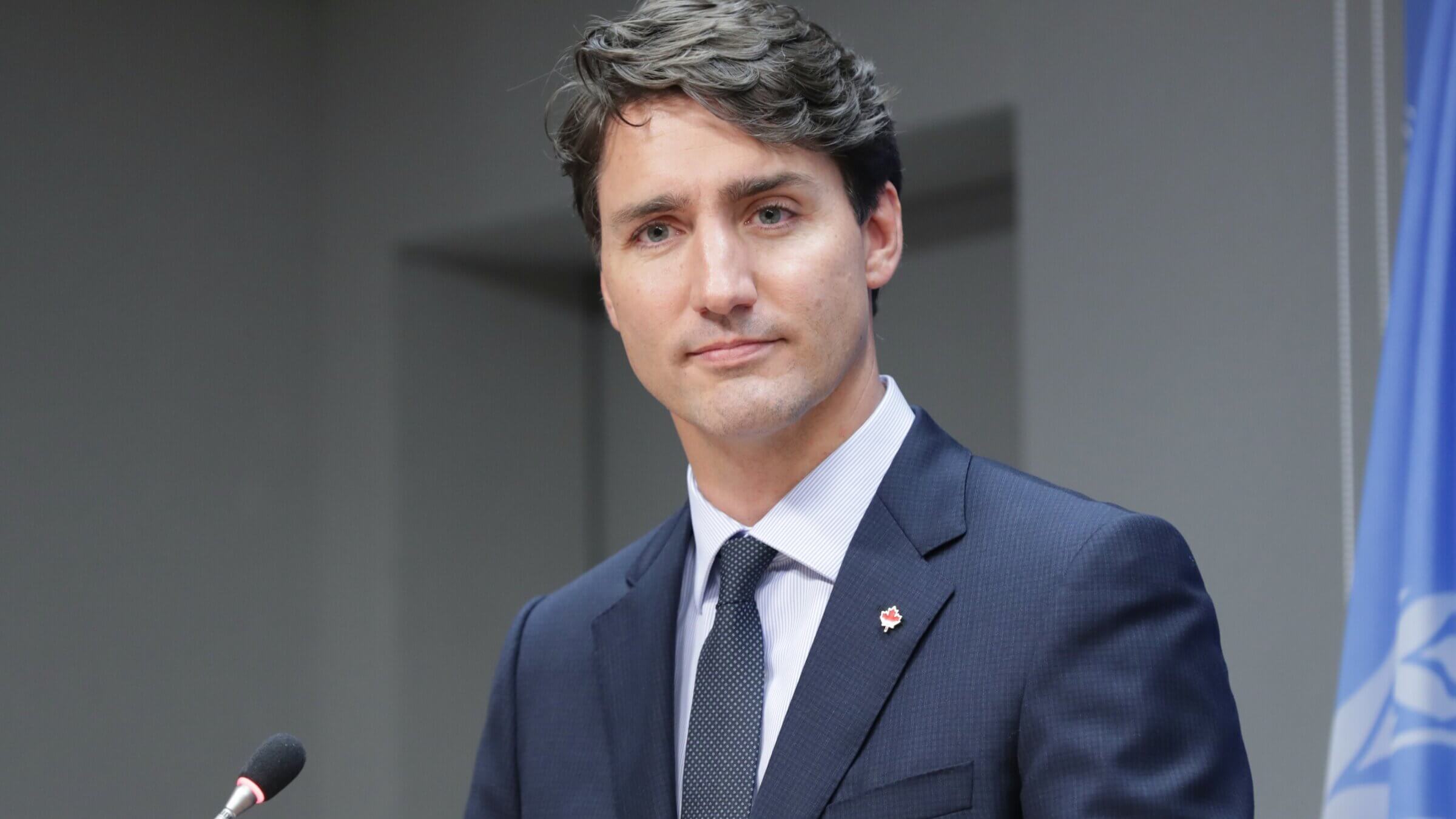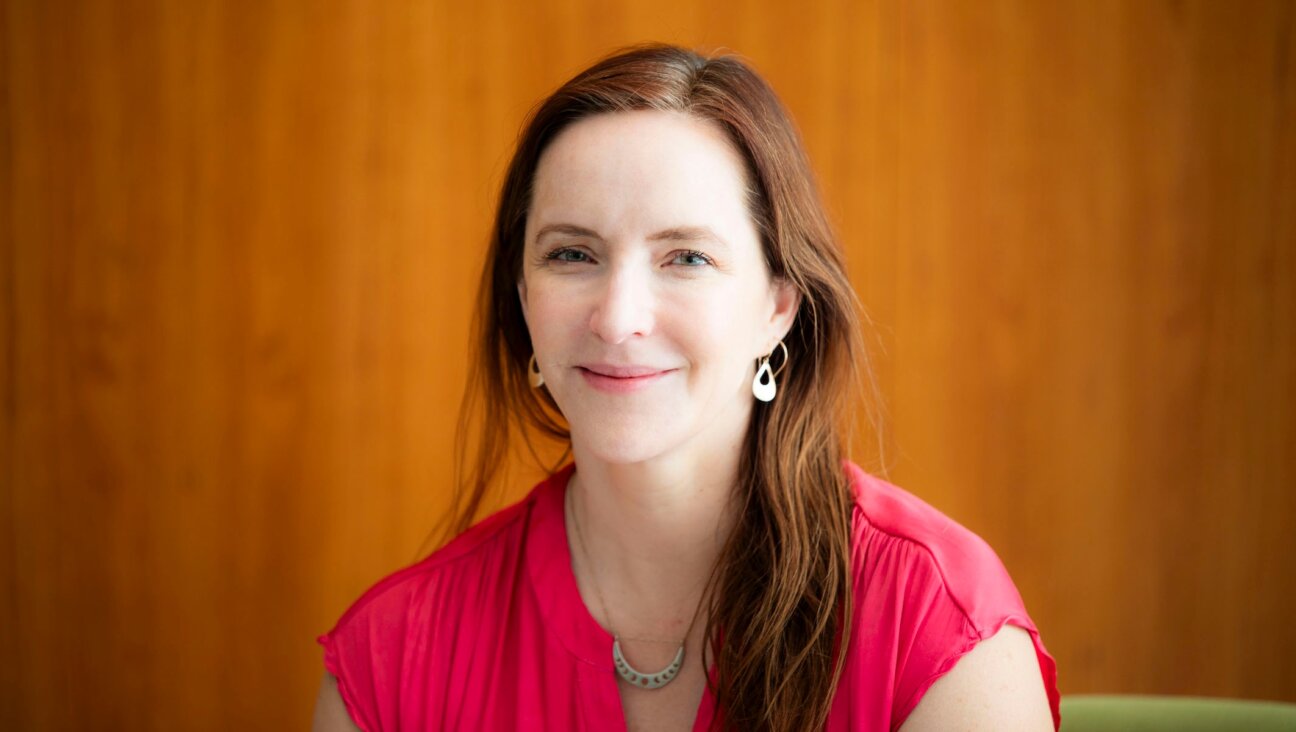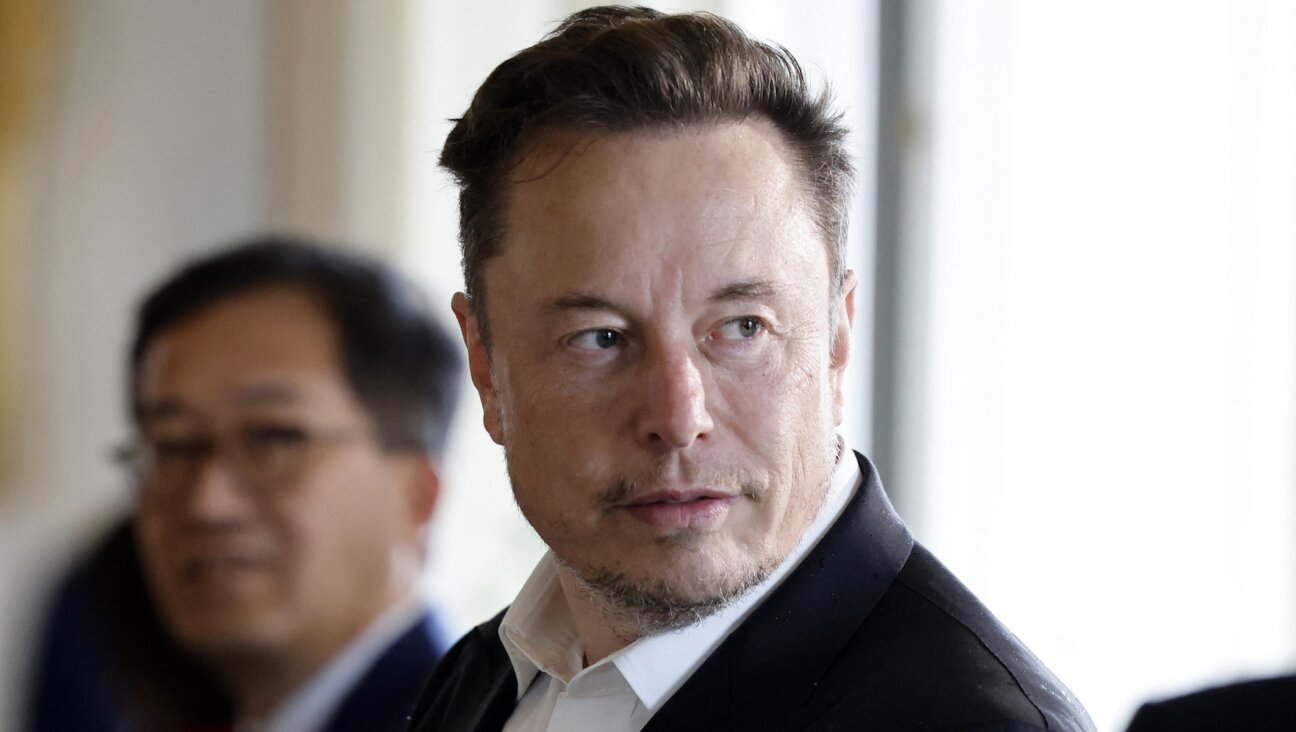Trudeau says Canada may finally make secret Nazi files public
The Deschênes Commission gave a pass in 1986 to Ukrainian immigrants who served in the Nazi-run Waffen SS division. Will those records now be declassified?

Canadian Prime Minister Justin Trudeau says the government is looking into declassifying files from a 1980s commission that investigated Ukrainian immigrants who served in a Nazi-run unit. Photo by Europa Newswire/Gado/Getty Images
Answering a call many Jewish Canadians have been making for decades, Canadian Prime Minister Justin Trudeau said Wednesday the government is looking into declassifying information from a 1980s commission that investigated and largely exonerated Ukrainian immigrants who fought for Germany in World War II.
“There are top public servants looking very carefully into the issue, including digging into the archives,” Trudeau told reporters. “We’re going to make recommendations.”
In 1986, the Commission of Inquiry on War Criminals, known as the Deschênes Commission, came to the controversial conclusion that the veterans “should not be indicted as a group” and that “mere membership” in the Nazi-run Waffen SS division was insufficient to justify prosecution or revoke citizenship.
In the wake of a scandal over Canada honoring a veteran of that division Sept. 22, B’nai Brith Canada called for the full release of the commission’s report. The report was heavily redacted along with other Holocaust-era records.
“Canadians deserve to know the full extent to which Nazi war criminals were permitted to settle in this country after the war,” the group said.
Friends of Simon Wiesenthal Centre has also called for the commission’s findings to be disclosed.
“The expression ‘sunlight is the best disinfectant’ could not be more relevant to this situation,” Michael Levitt, the Friends of Simon Wiesenthal Centre’s president, told CBC News. “If there was ever an issue in Canadian history that requires disinfecting, it’s our shameful record of covering up Nazi war criminal immigration to Canada in the 1940s and ’50s.”
Several thousand veterans of the unit, known as the Galichina Division, are believed to have settled in Canada after the war.
Among them is Yaroslav Hunka, 98, who was given a standing ovation in Canada’s House of Commons during a visit by Ukraine’s president, Volodymyr Zelenskyy, two weeks ago. After Hunka’s military service was unearthed by the Forward, the House speaker who’d hailed him as a hero resigned his leadership post, Trudeau apologized and the University of Alberta returned an endowment made in his honor.
The university is now looking into whether other endowments honoring Ukrainians who fought on the side of the Germans, some of whom had leadership roles in the military, should also be revoked.
Also on Wednesday, Governor General Mary Simon, the British crown’s representative in Canada, apologized for giving Peter Savaryn — a former chancellor of the University of Alberta who served in the same Nazi unit as Yaroslav Hunka — the crown’s second-highest honor, the Order of Canada.
A message from our Publisher & CEO Rachel Fishman Feddersen

I hope you appreciated this article. Before you go, I’d like to ask you to please support the Forward’s award-winning, nonprofit journalism during this critical time.
We’ve set a goal to raise $260,000 by December 31. That’s an ambitious goal, but one that will give us the resources we need to invest in the high quality news, opinion, analysis and cultural coverage that isn’t available anywhere else.
If you feel inspired to make an impact, now is the time to give something back. Join us as a member at your most generous level.
— Rachel Fishman Feddersen, Publisher and CEO
























